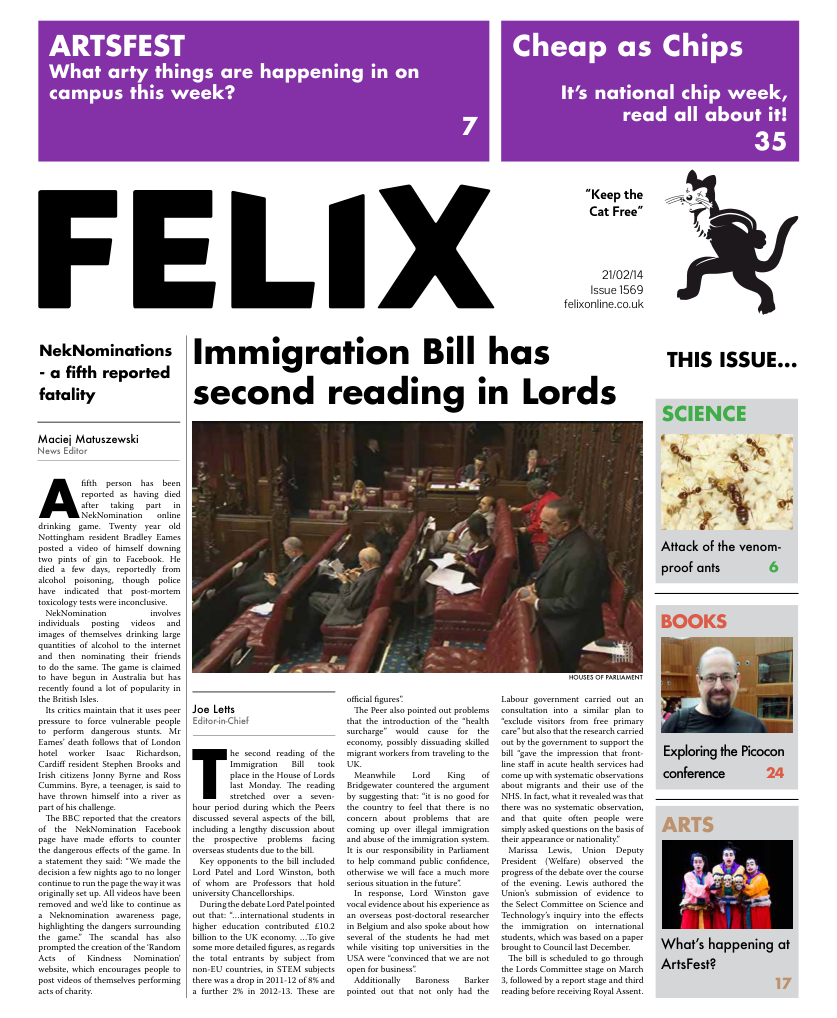Star Cops: A sci-fi golden oldie
First let me say – no, it’s not as bad as its name suggests. In fact it’s nothing like its name suggest. The show itself jokes about how bad a name it is in its very first episode.
First let me say – no, it’s not as bad as its name suggests. In fact it’s nothing like its name suggest. The show itself jokes about how bad a name it is in its very first episode. Star Cops is not some cheap police action-drama carelessly transplanted into a space setting. Instead, it is a very intelligent, brilliantly written piece of television, and one of the most unique examples of the SF genre that has ever graced our screens.
The action takes place in the near future of 2027, when space travel has become almost commonplace and humanity has constructed several orbital space stations, as well permanent bases on the Moon and Mars. However, the spread of humanity through the solar system has brought with it the spread of crime, necessitating the formation of the International Space Police Force (ISPF). Star Cops follows the inaugural commander of this organisation, Nathan Spring, and his staff as they deal with the problems of building the ISPF from an underfunded semi-professional group into a credible police force.
The real strength of the show is its writing. Series creator Chris Boucher had a great deal of experience of working on both science fiction and crime dramas, including the popular Blake’s 7 and Bergerac, and both his experience and innate skill show through in every episode. The show’s plots are all interesting and well-thought out, cleverly exploring both the new forms that crime might take in outer space as well as the international tensions that might arise from different nations competing in space. The political intrigue is one of the highlights of the show – with Spring having to play diplomat as much as detective and pretty much every superpower being shown as being brutally ruthless in what it is prepared to do to achieve its goals. Star Cops is special in being one of the few television shows out there to even flirt with the idea of hard science fiction – trying to keep the science as plausible as possible and carefully considering the potential consequences of technological advancement.
The show’s characters are also very well realised. No one is presented in terms of absolutes – everyone has a rich and complex personality and most have rigorously developed back-stories – in short, they seem like real people. This is greatly helped by the well-written, intelligent dialogue and some very good performances, particularly from David Calder, portraying Nathan Spring. Spring in particular is a very interesting character – intelligent yet often brusque and socially awkward – a temperament explained by his tragic back-story. Much of the show focuses on his often turbulent relationship with his staff, not helped by their many personal and professional shortcomings, and with him trying to get over his past.
The show was produced in the late 1980s and, while the special effects do look somewhat dated, they retain much of their effectiveness. It is immediately visible that a lot of time and effort was put in the creative team to make the show look as good as possible. The model work is both imaginative and realistic and special mention must be given to the ambitious weightlessness special effects – achieved through wire work and trick camera angles. This is especially impressive given that even most modern science fiction shows tend not to bother with this, preferring instead the cheap cop out of ‘artificial gravity’.
Star Cops was an excellent show and far ahead of its time. Always enjoyable, and often powerful, viewing – it was a crime that it was cancelled after only nine episodes. While DVDs of the show are rather difficult to find, many episodes are available to view online and the full box set is available from the Union’s Sci-Fi library. I strongly recommend that you check it out.




